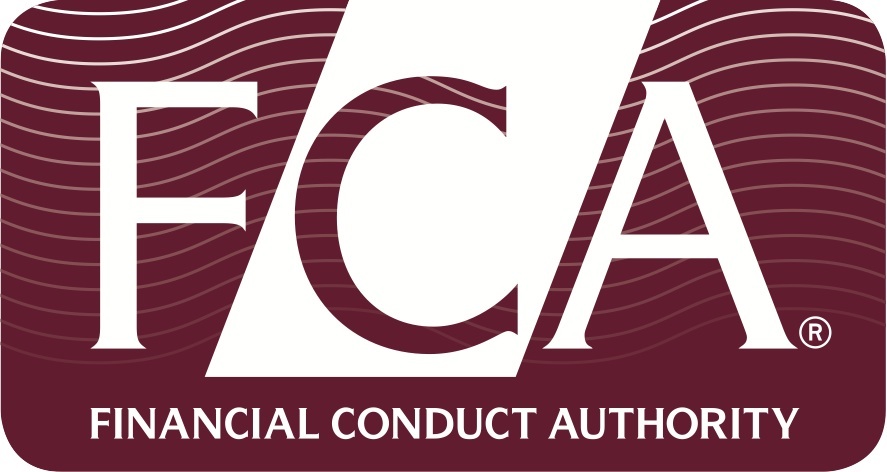We may be approaching holiday season, but fear not, things have not ground to a halt yet… there is still plenty going on in the world of compliance, so read on that we can bring you fully up to date!
We bring you two blogs this month. The first is on the SRA’s Diversity Survey, which all firms need to complete by the 18th August. The second is our guide to the Risk Outlook 2017/2018 which was published on the 25th July 2017, critical reading for any compliance officers.
The SRA has been particularly busy over the last month, with its activity including publishing its response to the CMA report on legal services and pushing for changes to the PII requirements.
Our usual list of disciplinary decisions are below, with a startling number of strike-offs, we also like the case of a Solicitor from Hereford carrying around £21,000 of client money in her handbag!
Hope you find our newsletter useful, please do get in touch if you have any questions or comments.
And if you are jetting off into the sun, have a wonderful time.

The SRA’s Equality and Diversity Survey
We know, it only seems like two minutes since you submitted the Financial Survey questionnaire right? But you can’t rest on your laurels, the next mandatory survey is the SRA’s Equality and Diversity survey which you will need to complete by the 18th August. If you haven’t started looking at this yet, we suggest you do so as soon as possible as it can take time to gather information from all your employees. Don’t worry, our blog sets out exactly what you need to do.
The deadline for reporting to the SRA is 18 August.

Risk Outlook 2017/2018
On the 25th July 2017 the SRA published its risk outlook for 2017/2018. This year the SRA have set out eight priority risks. These are risks that if not managed ‘risk harm to the public, the Rule of Law and the proper administration of justice’. Read our short guide here.
SRA responds to CMA report
The SRA has responded to the recommendations of the CMA’s report on legal services and has set out how it will ‘make the market more open and competitive’. The biggest, and probably the most controversial change, is to require firms to publish price information. Whilst accepting that this can be difficult, the SRA still believes it needs to happen so that more people can access legal service. In its response, the SRA also said it will look to develop quality signals by providers such as ‘regulated by the SRA’ and ‘protected by the compensation fund’
Why it matters
The SRA has been talking about publishing prices for some time now, but we can’t help but wonder whether much thought has been given into whether it is really going to have any impact on access to legal services. Take conveyancers (the SRA has named conveyancing as one of the areas it will trial), most will tell you there is not much margin in it as it is, even with efficiencies in place. Is a requirement to publish prices really going to make much difference? In the scheme of things, a solicitor is already good value…lets compare with estate agents if we must!
Irony alert – following the decision in March to close its board meetings, the SRAhas decided that it will no longer give press briefings immediately post meetings. Interesting timing when the profession is being pushed to be more transparent!
Online probate service
On the 15th June, the HMCTS entered a six months testing period for its online probate service. The changes include making the existing probate application form (PA1) easier to follow, and a digital statement of truth. Currently the document has to be sworn in front of an independent solicitor, and the swearing fee has kept the trainee solicitor coffee fund going for decades.
Why it matters
Whilst any move to streamline processes is welcomed, it is a drastic move to go from personal certification in front of an independent solicitor to a digital statement of truth. The risk of fraud has to be a consideration, it would be pointless to move to a streamlined system if it causes more issues than it solves. Signing the statement electronically is likely to include some form of verification service, and anyone who has had experience with those knows the headaches they can often cause (we name no names!).

Watch out – the Judge will start the case without you!
Her Honour Judge Margaret De Haas QC, designated family judge for Cheshire and Merseyside, has criticised the practice of ‘cross-courting’ in a publication of the Liverpool Law. ‘Cross-courting’ refers to the practice of accepting instructions in respect of two different cases in different courts which are due to be heard on the same day. Her Honour listed possible sanctions including calling the case in the absence of the culprit representative!
Why it matters
Double-booking on some occasions is inevitable and the reasons can often be justifiable. How many times have you listed a date to be unavailable and low and behold the Court ignores it and lists the matter on that date regardless? Or the Court have listed numerous hearings at the same time and you are either sat around waiting for your turn or you are sent home? Having said that, it is also frustrating if everyone is ready to go but the other side’s representative is at another Court. This can waste time as well as racking up costs. Sanctions in certain circumstances may be a good thing, but perhaps it would be beneficial for the Courts to look at their own systems as well.
PII Reform
Following research into PII in October 2016 the SRA announced a number of possible changes to the PII rules. These changes included reducing the minimum cover, introducing a single aggregate limit and that PII would only be compulsory for those firms providing services to consumers. The suggested change to minimum cover is to bring the level down from £2m to £750,000 or even £500,00 in order to lower premiums,
Why it matters
The SRA will consult on the changes this autumn, but the profession have already been voicing their concerns, including:
- Lower protection for clients, with probably minimal savings.
- A 2 tier system, with those smaller firms opting for the lower coverage seen as inferior to firms with the additional coverage.
- Consequences for firms that have the minimum cover which makes it an unpractical option (e.g being taken off lender panels).
- With cover only being compulsory for those firms serving consumers, rather than businesses, it would create a completely confusing market.
Our view is that it that the SRA is proposing radical reform to a system of insurance which, although not perfect, underpins the entire profession. Surely a regulator should be more concerned with firms’ compliance and risk management, and looking at what is causing these claims in the first place, rather than tinkering with the delicate balance of a functioning insurance market.

Solicitors Qualifying Exam (SQE) concerns
The Law Society and the law society’s junior lawyer’s division (JLD) have both raised concerns in responses to a consultation on the new route to qualification. One of JLDs main concerns is the consequences of solicitors not required to take a law degree, including causing a division with barristers and devaluing the solicitor brand. The JLD also raised concerns that there was still no assurance that the new route will be any cheaper or that it would improve social mobility. The Law Society said it ‘wanted to be encouraging’ about the SQE, but that the SRA had still not provided enough information to enable it to assess the impact.
Why it matters
The SQE will represent a massive change to the route to qualification. It is important that the process is thought through properly and we really hope that the SRA take these (in our opinion) valid points on board. Hopefully this will encourage the SRA not only to think about the concerns but also publish more detail and information on how the SQE will work. The SQE will be implemented shortly after the UK is due to leave the EU, as stated by the Law Society it is ever more important to ‘maintain the global reputation of the solicitor brand’ .
Rise in SRA interventions
In an update following July’s board meeting, the SRA has confirmed that it closed 20 firms from January to May 2017, double the 10 it closed in the same period last year. The SRA does not think there is a particular reason behind this spike in interventions but recognised the need to keep an eye on intervention activity.
Why it matters
The rise in interventions is of concern, almost more so as the SRA has been unable to establish any reasons for the spike. This certainly needs to be monitored so that any possible common reason for these interventions can be looked into as soon as possible.

FCA guidance on PEPs
The FCA have published guidance on how PEPs should be treated for money laundering purposes. Although the guidance is aimed at financial services firms, we would suggest it is also useful for lawyers.
Open Consultations
On the 27th July 2017 the SRA published it’s Corporate Strategy for 2017-2020 and has invited views on its proposals. We have responded saying that the strategy makes much of the benefits of its reform programme, but fails to acknowledge the potential risks. We fear that this could lead to blinkered reform for reform’s sake.
The strategy sets out five new objectives:
- Set up and apply consistently high professional standards
- Make sure regulatory requirements are proportionate, allowing firms to have flexibility to innovate and better meet the needs of the consumers.
- Increase the availability of relevant information to help people make informed choice
- Make sure that regulatory arrangements work as effectively as possible in the context of constitutional developments and relationship with the EU
- Work better to improve the effectiveness and responsiveness of its regulatory functions.
You can view and respond to the consultation here.

Disciplinary decisions
- A lesson for all to be careful who you take your instructions from. Solicitor Simon Proddow was rebuked and fined £2000 after dealing with the daughter of an elderly owner of a property in the sale of the house. Mr Proddow did not send any client care information to the client, did not meet with him or speak with him and paid the proceeds of the sale to the daughter’s account. It later emerged that an LPA was registered for the elderly man appointing his son as the attorney.
- Legal Executive Melanie Bushnell was given a section 43 order for pursuing a claim for her partner during her employment with DAS, using the firm’s name without its consent.
- Solicitor Lynne Muscroft was struck off the roll in an agreed outcome. Ms Muscroft admitted to settling a personal injury claim for £5000 without instructions from client. She told the client it had settled for over £60,000 and paid the remaining sums from unrelated client accounts.
- Solicitor Mansoor Ali was suspended indefinitely for assisting a client with an immigration matter to remain in the UK on a student visa in the knowledge that he was never a genuine student in the UK.
- Solicitor Neil Benson was struck off for creating 6 false letters in order to to the Welsh Land Registry in order to conceal his failure to issue an application for title based on adverse possession on behalf of his client.
- In an agreed outcome, solicitor John Bernard was rebuked for behaving in an inappropriate, physical manner, towards several female members in the firm’s Christmas party.
- A partner at Mills and Reeve LLP was rebuked for breaching client confidentiality by sending an email to a third party.
- Solicitor Richard Lacey, former member of Parry Welch Lacey LLP was rebuked for punching a female colleague in the face on an evening out.
- Solicitor Michael Healey was struck off the roll for misappropriating clients monies, misleading clients about their cases and making an untrue statement on his Practising Certificate.
- Back in February 2017, Solicitor Buddika Kadurugamuwa, was fined £2000 by the SDT following being found guilty of the criminal offence of transferring criminal property. The SRA did not consider this sanction sufficient and appealed to the High Court. The High Court dismissed the appeal stating that ‘the sanction imposed was not outside the ambit of the tribunal’s powers’.
- In a case in front of the SDT against two business partners, John Allan Jones was struck off and his business partner Lucinda Rowberry was fined £5000. Mr Jones was found to be dishonest and a number of other charges, including breaches of the Solicitors Accounts Rules. A more lenient approach was taken against Ms Rowberry despite admitting to carrying around £21,000 in cash around Hereford! She was not however accused of dishonesty and allegations relating to lack of integrity were not upheld.

Date for your diary – 19th September, Bristol
Thinking of buying, selling or merging with another practice? RSM is running a session on ‘Navigating M&A to achieve growth’.
More information and booking here.






